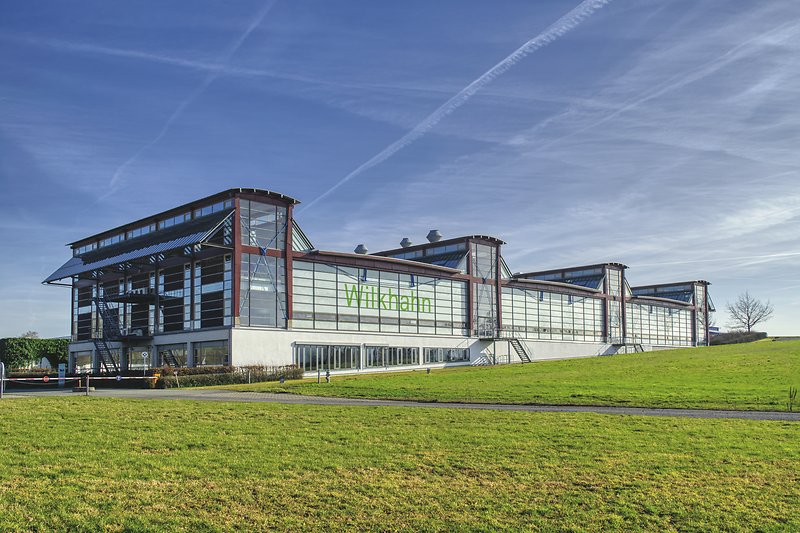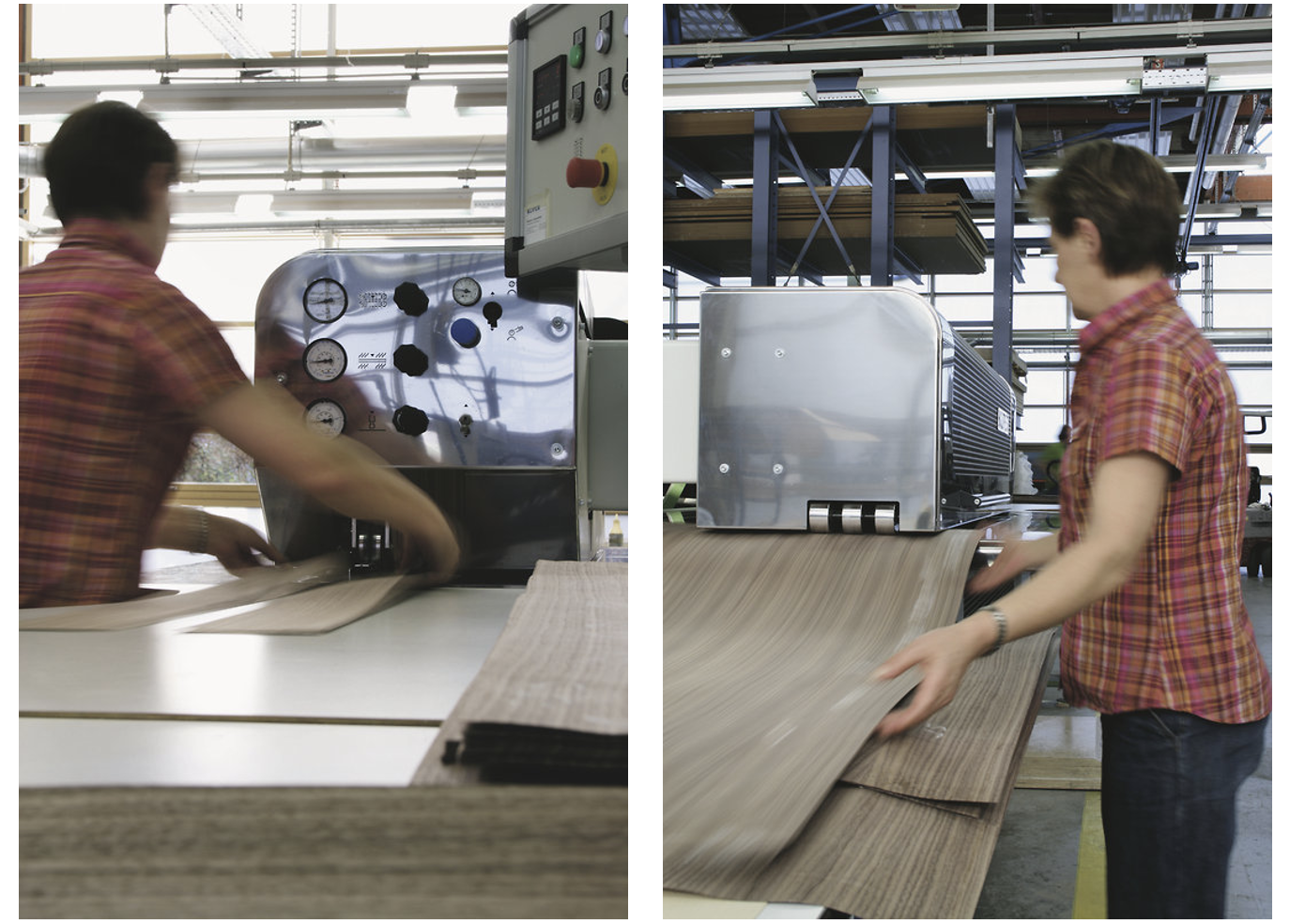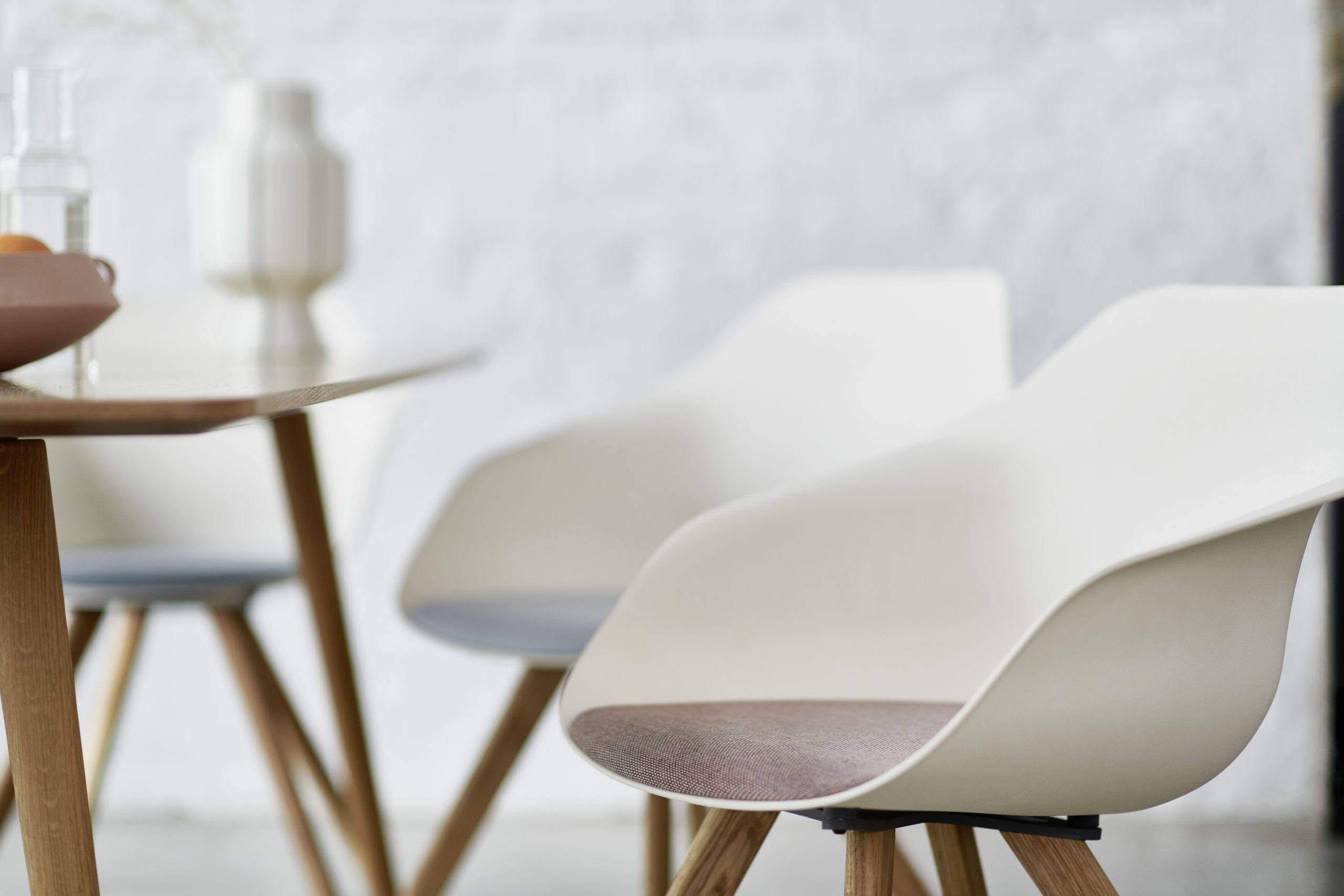
One of the biggest challenges of our age is to ensure the world’s a place still worth living in for us and subsequent generations. We all need to ensure our lifestyles are as climate neutral as possible. As a 1996 winner of a German ecological prize, sustainability has been at the heart of Wilkhahn’s business for decades. We believe that commercial success is always connected with social and ecological responsibility. Our timeless products are superbly crafted to ensure they last and last. They also enable simple repairs that extend their useful lives even further. Once the furniture’s reached the end of its life, some of the high-quality materials can even be recycled. This capability is our antidote to the throw-away society.
However, sustainability means a lot more to us than just producing first-class office furniture out of recyclable materials. We want to forge ahead with making the whole production process more resource efficient. We’re pursuing two strategies to ensure production processes are as climate friendly as possible. We’re increasing the use of green energy and constantly boosting efficiency to reduce energy consumption.
Renewable energy accounts for 54 percent of the mix
In 2021, despite higher productivity, we provided 3,875 megawatt hours of renewable energy in terms of our demand at Wilkhahn’s headquarters for the first time. This figure translates to a rise of 54 percent. We achieved this improvement by switching to green, hydroelectric power. And this year, two of every three kilowatt hours of energy are to be generated in a climate-neutral manner.
The company’s relative energy consumption compared with growth is also continuing to drop. In 2021, we achieved our goal of cutting this figure at headquarters by at least 10 percent compared with 2019. By switching to LED lighting in some of the sheds and replacing compressors with new, more efficient ones, absolute electricity consumption even decreased by 15 percent in this period.

Cutting carbon emissions, preventing waste and recycling consistently
We cut carbon dioxide emissions from the vehicle fleet by 11 percent and required one seventh less packaging made of wood, cardboard and plastic. In 2021, the waste from production lines and offices was cut by 10 percent compared with the previous year, even though production and the quantity of waste had risen. What’s more, 93 percent of production and office waste was recycled or used for thermal recovery.
In 2021, the increase in production led to a rise in the materials used and water consumption. The feedstock required also rose by 5 percent to 2,584 tonnes and water consumption by 12 percent compared with the previous year. We’ll continue to strive to save even more resources in these areas.

Protecting the planet means less is more
To ensure we’re greener throughout the company in future, we’re constantly working on tweaks and investing in new equipment, such as the multi-boiler control system for our biogas district heating and a bigger heat exchanger to control heat more efficiently.
We’re continuing to develop ideas for our Sustainability Action Plan across all areas of the company. The plan covers the design and development process to improvements in climate protection, energy and material efficiency and boosting the health and well-being of everyone concerned.
Nowadays, the modernist principle that less is more seems more relevant than ever. It concerns our products’ underlying design ethos and resource consumption in all the company’s processes. At Wilkhahn, we do everything to achieve this goal and provide the resulting added value.
You can read more about it in Wilkhahn’s sustainability report
You can find more information about our environmental protection goals and improvements in the 2020 – 2022 sustainability report with its environmental statement and the 2022 environmental statement update.
Subscribe to our newsletter
We’ll tell you about exciting events, stories from the office world and interesting new products in our newsletter once a month. Subscribe here
Further information
Find out more about sustainability at Wilkhahn here.
